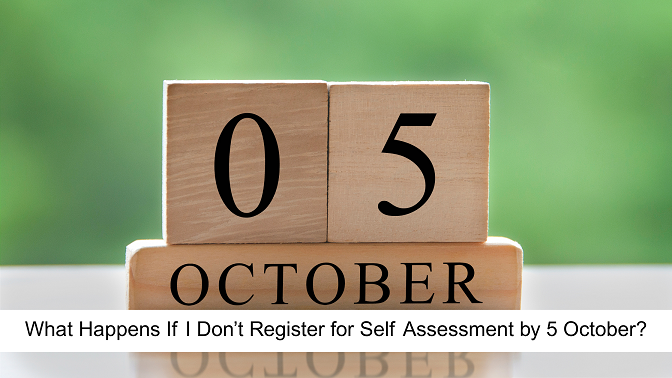
If you have income that is not taxed at source, such as income from self-employment, property rental or other non-taxable sources, you may need to register for self-assessment with HMRC.
The self-assessment registration deadline is 5 October in any given year. Failure to do so can incur penalties by HMRC, a fixed fine of £100, as well as additional fees if you fail to submit your tax return or pay taxes due later. Make sure you register on time in order to avoid all these additional expenses and hassles. What exactly happens if you miss this deadline?
This blog helps you with that, explaining the registration process, why meeting the deadline matters, and how to register for Self Assessment properly.
The UK financial year is from 6 April to 5 April in the coming financial year. You are required to register with HMRC on self-assessment by 5 October at the end of the financial year if you have received any money tax-free during the fiscal year and are in a position to make a self-assessment form.
You'll need to register by 5 October 2025 if you became self-employed or received other untaxed income in the 2024/2025 tax year up to 5 April 2025. This is important as it provides a time period in which HMRC can register you and issue you a Unique Taxpayer Reference (UTR), and therefore allow you to make the return by the deadline.
If you fail to make this self-evaluation registration, HMRC can fine you, and that soon results in expense and hassle.
You must register for self assessment if:
If you are unsure whether to register or not, HMRC offers online tools and guidance to check your liability. It is always safer to register if you think you need to register, rather than risk a fine later.
5 October is the self-assessment registration deadline. If you fail to meet this deadline, you will be charged a penalty by HMRC. The longer the penalty and the greater the amount you will owe.
Here’s what actually happens if you miss the deadline:
Late registration means not just penalties but also the risk of interest charges on any unpaid tax, which compounds your costs.
Registering for self-assessment is straightforward and can be done online at the official HMRC website. The two standard routes are:
Once you have registered, HMRC will send you your Unique Taxpayer Reference (UTR) and set up your online Government Gateway account. This usually takes 10 working days, so it is not worth waiting until the last minute.
If you fail to meet the 5 October deadline for claiming Self Assessment, claim as early as possible to avoid a £100 fixed penalty.
Payment of tax owing must be made by 31 January to avoid interest and penalties, including up to £10 per day charges, subject to a maximum of £900.
It is important to register on time because meeting the self-assessment registration deadline helps you avoid:
For anyone newly self-employed registration with HMRC is a legal duty once you exceed the income threshold, and it ensures you remain compliant with UK tax law.
Missing the self-assessment registration deadline of 5 October could result in costly penalties and complicate your tax dealings with HMRC. It is crucial to register on time if you are newly self-employed or have other taxable income.
If you require help with your self-assessment tax, PHS accountants are there to guide you through the process. Use HMRC's service to register properly for self-assessment and don't pay extra. Getting it all sorted out, registering on time, and paying on time keeps your financial health in balance. Contact us at 0208 8611685 and email us at info@phs-uk.co.uk.
Frequently Asked Questions